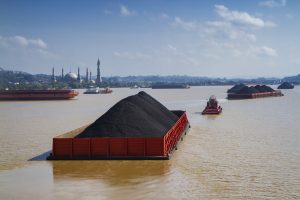The Just Energy Transition Partnership (JETP) between Indonesia and its major trading partners is at risk of stifling Indonesia’s coal phase-out progress if it does not provide a clear-cut definition of green projects. JETP must ensure that all projects funded under the deal align with globally agreed targets of achieving net zero emissions by 2050.
The JETP fund has pledged it would retire all coal plants by 2040, in line with reaching the net zero goal by 2050. Indonesia plans to retire around 5.5 gigawatts of power. During this same period, however, Indonesia is on track to build new coal power plants that would produce 12.8 GW inside industrial parks, producing enormous carbon pollution, according to research by Trend Asia.
Coal plants nested inside industrial parks are known as “captive” coal-fired power plants. It does not make any sense for Indonesia’s and global climate goals that captive coal power plants are allowed under the current regulations.
The International Energy Agency says that there can be no new coal-fired power plants approved after 2021 if the world is to have a chance of limiting global warming to 1.5 degrees and preventing a climate catastrophe.
Just days ago, a new captive coal-fired power plant was financed. Adaro’s coal power plant is being funded by five Indonesian banks including Bank Mandiri, Bank Rakyat Indonesia, and Bank Negara Indonesia, to power a massive aluminum smelter in North Kalimantan.
Initially intended to accelerate the deployment of renewable energy by restricting new coal projects development, the 112/2022 Presidential Regulation ironically singles out the development of captive coal plants. The regulation allows polluting new coal power plants as long as they are attached to an industrial facility.
Investment in renewable energy is being ramped up, but much more is needed urgently if companies wish to proceed with key green industrial projects. There is growing evidence that renewable energy is economically viable.
The global energy transition is ramping up with an urgent rush to build solar plants and wind farms. Demand for minerals needed for renewable energy is skyrocketing as outlined by the International Energy Agency.
It is crucial that soaring power demands are met with clean and just energy sources in order for Indonesia to achieve net zero emission by 2050. At the moment, most of Indonesia’s energy demands are still met with dirty fossil fuels.
The Just Energy Transition Partnership emphasizes that the development of captive coal fired power plants needs to be restricted consistent with the Indonesian presidential regulation, which allows for new captive coal plants to be built.
The partnership agreement between Indonesia and its major trading partners agrees to “find and implement potential zero-emission and renewable solutions for power generation.” Yet both public and private investors of the JETP lack a clear restriction on new captive coal plants in favor of renewable energy alternatives.
It’s critical for Indonesia as it heads down the path to a renewable energy future, that the JETP establishes a clear definition for green projects that excludes new coal-fired power plants attached to industrial facilities. It is completely unacceptable that smelter projects that manufacture and process raw materials for electric vehicles or solar panels could be labeled as “green” when they are powered by new coal-fired plants.
Adaro Energy’s aluminum smelter inside an industrial park in North Kalimantan recently came under fire from a broad coalition of environment organizations due to the company’s use of the green label when it is relying on a new coal plant. The coal company recently clarified that its green label only applies once a hydro power plant planned for the Kalimantan industrial park is completed for operation in 2030.
It makes no sense that under the guise of a green economy, the JETP could finance smelters and enable new coal power plants. Indonesia is in danger of hurtling in the wrong direction as the governments worldwide reign in runaway climate change. There must be clear-cut safeguards to exclude any smelters powered with a new coal-fired plant. The cost of overlooking coal-fired smelters is too high for the economy and the environment. Vital progress made with the retirement of coal power plants is being compromised. The reputation of major international agreements, the JETP and International Partners Group is in jeopardy.
The same rules must apply for members of the Glasgow Financial Alliance on Net Zero (GFANZ), which is set to provide half of the $20 billion JETP funding. The alliance consists of major global banks including MUFG, Standard Chartered, HSBC, Bank of America, Citi, and Deutsche Bank. These banks must steer clear of any smelter projects reliant on new coal power plants to remain consistent with JETP principles.
Unless the IPG and GFANZ have a clear stance on new captive coal fired power plants, it would send a message to the government of Indonesia that such polluting developments are acceptable and aligned with the net zero emissions targets of the Paris Agreement. HSBC’s financing policy for example, makes clear that the bank will not finance new captive coal-fired power plants, providing a benchmark for public and private investors in the JETP.
Indonesia must make a choice in the best long-term interests of its economy and the climate.
Strict safeguards need to be implemented, consistent with achieving net zero emissions by 2050; otherwise, JETP funds could be misused for damaging developments, jeopardizing progress toward achieving global climate goals before it’s too late.

































